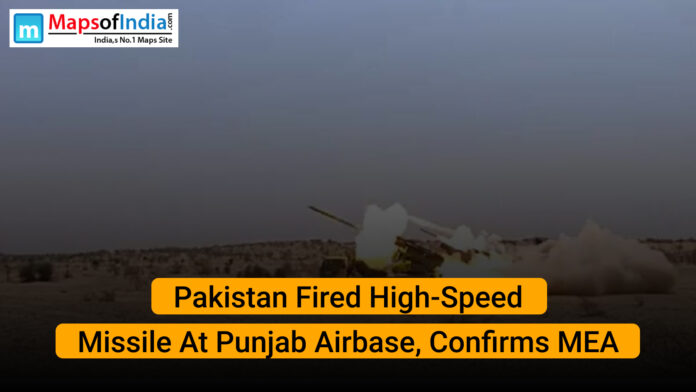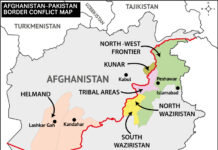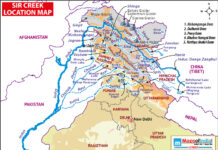
In a significant escalation of hostilities between India and Pakistan, the Ministry of External Affairs (MEA) confirmed on May 10, 2025, that Pakistan launched a high-speed missile targeting an Indian airbase in Punjab. This development follows a series of military strikes by both nations, marking the most severe confrontation since the 1999 Kargil War.
Background of the Conflict
The recent tensions began on April 22, 2025, when a terrorist attack in Pahalgam, Indian-administered Kashmir, resulted in the deaths of 26 civilians, predominantly Hindu tourists. India attributed the attack to Pakistan-based militant groups, leading to its retaliatory strikes under Operation Sindoor. Pakistan denied involvement and called for an independent investigation.
In response to India’s missile attacks on three Pakistani airbases near Islamabad, Pakistan launched retaliatory strikes on multiple Indian military installations, including airbases in Punjab and Indian-administered Kashmir. The conflict has resulted in at least 48 fatalities, signaling a serious escalation in hostilities.
Details of Pakistan’s Missile Strike
According to the MEA, Pakistan utilized high-speed missiles to target an airbase in Punjab. The missile strike is part of Pakistan’s broader military response, which also included drone and fighter jet attacks on India’s western border. Colonel Sofiya Qureshi, during a press briefing, confirmed that Pakistan’s military has been continuously attacking India’s military sites using various means, including drones, long-range weapons, loitering munitions, and fighter jets.
India’s Response and Preparedness
In retaliation, India has activated its missile command structure and launched strikes on multiple Pakistani military targets. The Indian Air Force has successfully intercepted several Pakistani missiles and drones targeting strategic airbases in Punjab and Jammu. Defense officials have reassured the public that all Indian airbases remain secure, with no direct threat to major civilian infrastructure. Security across Delhi, Haryana, Punjab, and Jammu has been tightened, with nighttime blackout protocols activated in certain high-risk zones as a precaution.
International Reactions and Diplomatic Efforts
The international community has expressed deep concern over the escalating conflict between the two nuclear-armed nations. The United States, Saudi Arabia, and other global powers have urged both India and Pakistan to exercise restraint and engage in dialogue to prevent further escalation. Diplomatic channels are actively being pursued to de-escalate the situation and avoid a full-scale war.
Conclusion
The confirmation of Pakistan’s missile strike on an Indian airbase in Punjab underscores the heightened state of alert and the seriousness with which both nations view the recent developments. As both countries continue to navigate this precarious situation, the global community remains hopeful for a peaceful resolution to the crisis.



